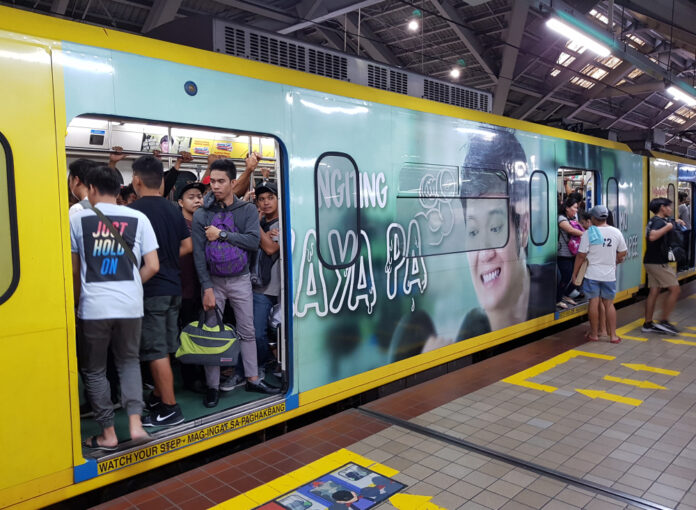The operators of Metro Manila’s rail systems on Friday said a fare hike is required both to support their operations as well as reduce the subsidies provided by the national government.
In a public hearing, The Light Rail Manila Corp. (LRMC), the operator of LRT Line 1, the Light Rail Transit Authority (LRTA), the operator of LRT Line 2 and the MRT3 management asked the Rail Regulatory Unit (RRU) of the Department of Transportation (DOTr) to approve their respective petitions for fare adjustments.
Based on their petitions, the three rail operators have proposed a boarding fare of P13.29 and distance fare of P1.21 per km.
At present, LRT line 1, MRT3 and LRT Line 2 have maintained a boarding fare of P11 and distance fare of P1 per km since 2015.
“Were asking the unit [RRU] to approve our fare hike petition because of higher inflation and power rates,” Jimmy Santiago, LRMC general counsel said during the hearing.
He said the actual fare deficit for LRMC stood at P1.46 billion arising from government failure to approve its fare hike request since 2015.
On the assumption that no fare hikes are approved until 2025, the fare deficit will balloon to P5.7 billion.
Under its contract with the government, the initial boarding fare was supposedly at P12.13 and the initial distance fare at P1.10 per km.
LRTA, on the other hand, said the approval of the fare adjustment is “crucial” considering the financial condition of the LRTA.
“LRTA’s internally generated funds are not sufficient to sustain its total operating expense requirements. For this reason, the authority has an operational subsidy from the national government for the year 2023 in the total amount of P1.053 million,” it said.
The proposed fare increase would reduce subsidies from the government and provide better and improved services that allow the LRTA to invest in the rehabilitation and improvement of the system and its facilities.
The MRT3 said it has struggled with finances due to higher operating expenses.
“Fare revenues have never been enough to compensate what is owed to Metro Rail Transit Corp. to cover the initial investment in building the railway facility and to properly maintain and operate the line,” MRT3 said.
“However, because it is an essential service, it is continuously maintained and subsidized, costing continuous deficits on the part of the government’ it added.
As of November 2022, the MRT3 system’s total expenses amounted to P8.96 billion, while the revenue amounted only to P1.1 billion resulting in a deficit of P7.8 billion or P88.34 government subsidy for every passenger.
Renato Reyes Jr., secretary general of Bagong Alyansang Makabayan and other stakeholders opposed the proposed fare hike at the three mass rail systems.







